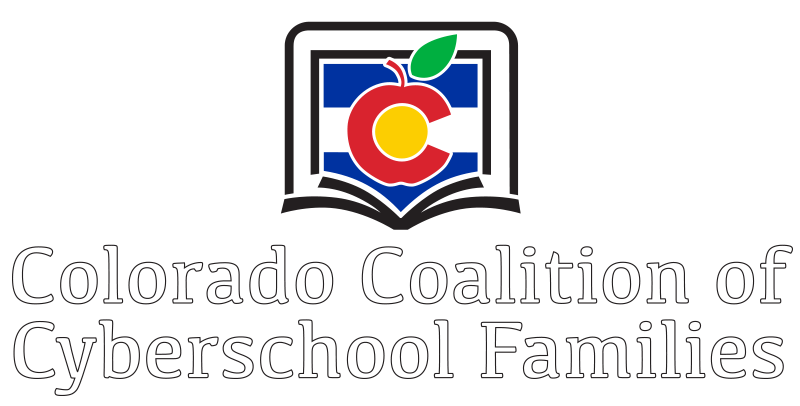S.B. 24-070: A Win for Colorado Cyberschool Students
Thanks to the new law passed in last year’s legislative session, Colorado schools may begin the rollout of remote testing for state assessments. After a pilot phase this year, schools are aiming to offer the option to your student starting fall 2025, thanks to the hard work of many administrators, legislators, and the CCCF team and community!
The bill, signed into law by Governor Jared Polis on June 5, 2024, provides cyberschool students with a fair and accessible way to demonstrate their learning, as well as $440,000 in supportive state funding to schools starting this 2024-2025 school year.
This is a significant milestone for our community, ensuring that cyberschool students have equal opportunities to succeed and that their unique needs are recognized and addressed.
Thank you to everyone who helped us advocate for this bill to pass!
What Does SB24-070 Do?
The bill allows online schools to offer remote state assessments to their students in a setting that aligns with the student's regular educational instruction.
Students will take the assessment at a designated date and time in a synchronous session managed by school staff.
Students must use a device with a camera so that a proctor can monitor the student via video for the duration of the assessment.
Proctors will oversee no more than 10 students per assessment.
Students must not exit the assessment unless and until instructed by the proctor.
The proctor will verify the submission of each student’s state assessment.
Facts on Remote State Assessments for K-12 Online Students
Online students historically opt-out for state assessments at a higher rate than their traditional school peers (43% vs. 70% in 2023) as of the year prior to the passage of SB24-070 in 2024, leading to misconceptions about their academic performance.
Virtual school students must take these tests in-person at locations like hotel meeting rooms, which are unfamiliar, are proctored by people they do not know, and create logistical and financial burdens for families.
A Colorado Coalition of Cyberschool Families (CCCF) survey revealed key reasons for opting out include distance to testing sites (25.25%) and travel difficulties (30.61%). Additionally, 68% of cyberschool families have previously opted out, and 69.31% plan to continue, impacting the Colorado Department of Education's ability to evaluate student progress comprehensively.
Why is Remote Testing Necessary?
Remote state assessments increase virtual student participation.
71.29% of cyberschool families in Colorado said they would be more willing to participate in state assessments if they were available remotely.
In-person testing creates unfair burdens for virtual schools.
Virtual schools must spend their limited resources on renting testing sites, providing computers, and allowing for staff time, when it could be going to instructional needs and materials for teachers and students.
In-person testing enhances anxiety and testing fatigue which negatively impact student performance.
This is due to artificial testing environments in distant centers with unknown proctors, leading to lower scores (e.g., a 5-point standard deviation drop in reading scores with unfamiliar proctors). Additionally, 40% of cyberschool families consider test anxiety, a widespread issue causing discomfort before, during, or after tests, as a key factor in their decision to opt-out of state testing.
Remote state assessments are more inclusive and equitable.
Cyberschool families deserve equitable access to reliable and effective assessments. For virtual school students, testing at home represents continuity with their usual learning and testing environments.
Remote testing leads to improved outcomes.
Remote testing has shown stronger correlation with academic performance than facility-based testing for virtual students. In Iowa, Idaho, and California, virtual students taking remote assessments improved significantly. Continued remote assessments led to gains comparable to nearly one year of learning.
Remote testing can be done safely and securely.
Remote proctoring and monitoring can be done through image capturing, video streaming, screen capturing, and voice proctoring.
Remote State Assessments in Other States:
During the COVID-19 pandemic, states including Idaho, Iowa, and California enabled home-based state assessments for students in the 2020-21 school year. Oregon and Virginia have policies allowing cyberschool students to take state assessments remotely, matching their primary instructional model. Around the same time as Colorado passed SB24-070, Arizona passed SB-1457, similarly ensuring public schools can administer remote tests to online students. Arkansas, Kansas, Utah, and West Virginia also passed laws in 2023 for online state assessments for cyberschool students.









